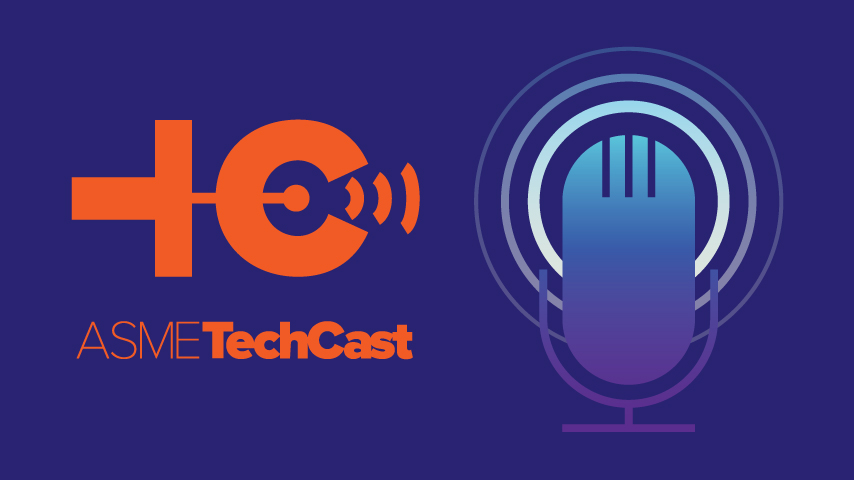Gen Z Leads the Charge in Office Culture Reboot
Gen Z Leads the Charge in Office Culture Reboot


Pressure is builiding for work environments to emphasize flexibility and updated management processes.
Although living with COVID over the last two and a half years has pushed everyone to rethink what it means to work and how to do it, Gen Z has been the voice continually crying for change.
Companies and others are finally listening.
Recent reports found that with Gen Z in the office, executives are being highly encouraged to rethink how work should be conducted on a daily basis. Flexibility, modernized benefit packages, and updated management processes spills from their lips as attractive changes to be made in the office.
Among the reports, Deltek — a leading global provider of software and information solutions for project-based businesses — recently conducted a survey of senior leaders of midsized to larger companies with more than 50 employees. This study discovered that if companies want to retain and grow their workforces, change must be actionable.
More for You: 5 Things to Know Before Opening a Consulting Business
But, change comes with a cost.
“I find that a lot of companies are afraid that if they change or adopt too much they may lose their sense of culture,” said Dave Lee, a product director and HR professional with Deltek.
In many of those companies, senior leaders may have been with their employers for a few decades where the prevalent attitude has been: “It’s gonna be my way or the highway,” he explained, adding that some even believe new people still must “pay their dues.”
This attitude doesn’t work with Gen Z, which according to the 2020 Department of Labor statistics, makes up only 11.6 percent of the current workforce. However, they make up more than 20 percent of the U.S. population. Once fully in the workforce, their penchant for diversity, flexibility, and social responsibility will be the deciding factors on whether to stay at certain companies.
“They want opportunities to affect social change,” Lee said. “They’re a very DEI-focused generation, too. They bring a lot of fresh perspective that some older generations — quite honestly — need to understand.”
This understanding must come, otherwise companies will continually feel the sting of the Great Resignation, which to date, has been reported as having no real end in sight.
Read about: Mastering More Willpower
According to the latest federal statistics, 4.3 million Americans quit their jobs in January of this year, just under the record set in November 2021, a year in which 48 million people quit their jobs, which was an annual record. Gen Z may be voicing their concerns, but other generations have spoken with their resignation letters.
“There has to be an open-mindedness to affect change in the workplace,” Lee explained.
He and Deltek work with companies, encouraging them to pivot. It’s alright to encourage a hybrid work model, institute better benefits that meet the needs of all employees, be socially conscious, as well as manage and mentor employees with empathy in mind.
“There is nothing to say that everything had to stay the same, the way it’s always been in prior generations, where everyone must be in the office 50 to 60 hours a week," Lee said. "Where it’s about the amount of hours you put in rather than the quality of time you put in.”
Today’s workforce rails against this mentality. The pandemic and other social uprisings in this country gave room for people to stop, step back, and ask the critical question: Is this what I want?
Lee explained that change had been coming in the workplace but at a very slow pace. The pandemic and other social changes became a catalyst to speed up the process.
“We’ve seen so much divide in our country, and the pandemic has brought up a lot of strong opinions,” he said, adding that it’s also been a time “...of soul searching and thinking about what is important to them moving forward.”
Where some companies have been resistant to change, others have embraced it, Lee said. Some of the changes include upskilling employees on new technology, processes, and other modernization aspects to kick companies into becoming more operationally efficient.
Avenues like mentorship, coaching, and external educational programs seem to be safe pathways to explore because they don’t require anything extra from the current workforce or more specifically the older generation of workers. However, this becomes a touchy subject when programs require current employees to become subject matter experts.
Reader's Choice: Slowing Workforce Exodus Requires Hybrid, Safety Solutions
“It’s a hard sell,” said Lee, who has seen these types of experiences benefit everyone. During his 17-year career in HR and the five-year stint he’s been with Deltek, he’s heard all kinds of reasons as to why people can’t buy into this type of upskilling.
However, the bottom line honestly has to do with people’s personal experiences with work. Lee gave some examples of reasons he’s heard over the years: “I don’t have time to develop other people. It’s not really my job. No one ever did that for me.”
This sentiment is what Gen Z and others don’t want to experience, and the changes they are asking for could truly be the solution to keeping this from being their reality. Lee believes that if employees would become vested in career development and succession planning and growth, the entire company would be strengthened.
Changing quickly isn’t easy. Lee believes, however, that if companies can develop a solid plan and employees see those companies actively responding to the changing climate while steering companies in positive directions, employees will stay.
It all boils down to understanding that when companies make lasting change, it creates an environment where all people can thrive. “It really does start with listening and asking and organizations to be willing to take the time.”
Nichole M. Palmer in an independent writer in Petersburg, Va.
Companies and others are finally listening.
Recent reports found that with Gen Z in the office, executives are being highly encouraged to rethink how work should be conducted on a daily basis. Flexibility, modernized benefit packages, and updated management processes spills from their lips as attractive changes to be made in the office.
Among the reports, Deltek — a leading global provider of software and information solutions for project-based businesses — recently conducted a survey of senior leaders of midsized to larger companies with more than 50 employees. This study discovered that if companies want to retain and grow their workforces, change must be actionable.
More for You: 5 Things to Know Before Opening a Consulting Business
But, change comes with a cost.
“I find that a lot of companies are afraid that if they change or adopt too much they may lose their sense of culture,” said Dave Lee, a product director and HR professional with Deltek.
In many of those companies, senior leaders may have been with their employers for a few decades where the prevalent attitude has been: “It’s gonna be my way or the highway,” he explained, adding that some even believe new people still must “pay their dues.”
This attitude doesn’t work with Gen Z, which according to the 2020 Department of Labor statistics, makes up only 11.6 percent of the current workforce. However, they make up more than 20 percent of the U.S. population. Once fully in the workforce, their penchant for diversity, flexibility, and social responsibility will be the deciding factors on whether to stay at certain companies.
“They want opportunities to affect social change,” Lee said. “They’re a very DEI-focused generation, too. They bring a lot of fresh perspective that some older generations — quite honestly — need to understand.”
This understanding must come, otherwise companies will continually feel the sting of the Great Resignation, which to date, has been reported as having no real end in sight.
Read about: Mastering More Willpower
According to the latest federal statistics, 4.3 million Americans quit their jobs in January of this year, just under the record set in November 2021, a year in which 48 million people quit their jobs, which was an annual record. Gen Z may be voicing their concerns, but other generations have spoken with their resignation letters.
“There has to be an open-mindedness to affect change in the workplace,” Lee explained.
He and Deltek work with companies, encouraging them to pivot. It’s alright to encourage a hybrid work model, institute better benefits that meet the needs of all employees, be socially conscious, as well as manage and mentor employees with empathy in mind.
“There is nothing to say that everything had to stay the same, the way it’s always been in prior generations, where everyone must be in the office 50 to 60 hours a week," Lee said. "Where it’s about the amount of hours you put in rather than the quality of time you put in.”
Today’s workforce rails against this mentality. The pandemic and other social uprisings in this country gave room for people to stop, step back, and ask the critical question: Is this what I want?
Lee explained that change had been coming in the workplace but at a very slow pace. The pandemic and other social changes became a catalyst to speed up the process.
“We’ve seen so much divide in our country, and the pandemic has brought up a lot of strong opinions,” he said, adding that it’s also been a time “...of soul searching and thinking about what is important to them moving forward.”
Where some companies have been resistant to change, others have embraced it, Lee said. Some of the changes include upskilling employees on new technology, processes, and other modernization aspects to kick companies into becoming more operationally efficient.
Avenues like mentorship, coaching, and external educational programs seem to be safe pathways to explore because they don’t require anything extra from the current workforce or more specifically the older generation of workers. However, this becomes a touchy subject when programs require current employees to become subject matter experts.
Reader's Choice: Slowing Workforce Exodus Requires Hybrid, Safety Solutions
“It’s a hard sell,” said Lee, who has seen these types of experiences benefit everyone. During his 17-year career in HR and the five-year stint he’s been with Deltek, he’s heard all kinds of reasons as to why people can’t buy into this type of upskilling.
However, the bottom line honestly has to do with people’s personal experiences with work. Lee gave some examples of reasons he’s heard over the years: “I don’t have time to develop other people. It’s not really my job. No one ever did that for me.”
This sentiment is what Gen Z and others don’t want to experience, and the changes they are asking for could truly be the solution to keeping this from being their reality. Lee believes that if employees would become vested in career development and succession planning and growth, the entire company would be strengthened.
Changing quickly isn’t easy. Lee believes, however, that if companies can develop a solid plan and employees see those companies actively responding to the changing climate while steering companies in positive directions, employees will stay.
It all boils down to understanding that when companies make lasting change, it creates an environment where all people can thrive. “It really does start with listening and asking and organizations to be willing to take the time.”
Nichole M. Palmer in an independent writer in Petersburg, Va.



